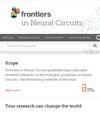比较大鼠和小鼠丘脑后束内核和周核的连接性
IF 3
3区 医学
Q2 NEUROSCIENCES
引用次数: 0
摘要
丘脑后束内核(PIL)和丘脑周围核(PP)是位于内侧膝状核内侧的两个相邻结构。PIL-PP 区域在听觉恐惧条件反射以及社交、母性和性行为中发挥着重要作用。以往的研究往往将 PIL 和 PP 混为一谈,因此不知道它们是否有共同和/或不同的全脑连接。在本研究中,我们采用可靠的顺行和逆行追踪方法研究了 PIL 和 PP 的全脑传出和传入投射。PIL和PP都强烈地投射到杏仁核的外侧、内侧和前基底内侧、后腹纹状体(丘脑和外侧苍白球)、杏仁体过渡区、内侧区、上丘脑和下丘脑以及外侧皮层。然而,PP 比 PIL 向下丘脑区域(如视前区/核、下丘脑前核和下丘脑腹内侧核)发出更强的投射。至于传入投射,PIL 和 PP 都接收来自听觉(下丘、上橄榄核、外侧半月板核和联想听皮层)的多模态信息、视觉(上丘和外侧皮层)、躯体感觉(砾核和楔核)、运动(外侧苍白球)和边缘(杏仁核中央、下丘脑和岛叶皮层)结构。然而,PP 而不是 PIL 从视觉相关结构副侧神经核和腹外侧膝状核接收强烈的投射。小鼠 Cre 依赖性病毒追踪的其他结果也证实了大鼠的主要结果。总之,本研究的这些发现将为我们了解 PIL 和 PP 的神经回路和功能相关性提供新的视角。本文章由计算机程序翻译,如有差异,请以英文原文为准。
Comparison of the connectivity of the posterior intralaminar thalamic nucleus and peripeduncular nucleus in rats and mice
The posterior intralaminar thalamic nucleus (PIL) and peripeduncular nucleus (PP) are two adjoining structures located medioventral to the medial geniculate nucleus. The PIL-PP region plays important roles in auditory fear conditioning and in social, maternal and sexual behaviors. Previous studies often lumped the PIL and PP into single entity, and therefore it is not known if they have common and/or different brain-wide connections. In this study, we investigate brain-wide efferent and afferent projections of the PIL and PP using reliable anterograde and retrograde tracing methods. Both PIL and PP project strongly to lateral, medial and anterior basomedial amygdaloid nuclei, posteroventral striatum (putamen and external globus pallidus), amygdalostriatal transition area, zona incerta, superior and inferior colliculi, and the ectorhinal cortex. However, the PP rather than the PIL send stronger projections to the hypothalamic regions such as preoptic area/nucleus, anterior hypothalamic nucleus, and ventromedial nucleus of hypothalamus. As for the afferent projections, both PIL and PP receive multimodal information from auditory (inferior colliculus, superior olivary nucleus, nucleus of lateral lemniscus, and association auditory cortex), visual (superior colliculus and ectorhinal cortex), somatosensory (gracile and cuneate nuclei), motor (external globus pallidus), and limbic (central amygdaloid nucleus, hypothalamus, and insular cortex) structures. However, the PP rather than PIL receives strong projections from the visual related structures parabigeminal nucleus and ventral lateral geniculate nucleus. Additional results from Cre-dependent viral tracing in mice have also confirmed the main results in rats. Together, the findings in this study would provide new insights into the neural circuits and functional correlation of the PIL and PP.
求助全文
通过发布文献求助,成功后即可免费获取论文全文。
去求助
来源期刊

Frontiers in Neural Circuits
NEUROSCIENCES-
CiteScore
6.00
自引率
5.70%
发文量
135
审稿时长
4-8 weeks
期刊介绍:
Frontiers in Neural Circuits publishes rigorously peer-reviewed research on the emergent properties of neural circuits - the elementary modules of the brain. Specialty Chief Editors Takao K. Hensch and Edward Ruthazer at Harvard University and McGill University respectively, are supported by an outstanding Editorial Board of international experts. This multidisciplinary open-access journal is at the forefront of disseminating and communicating scientific knowledge and impactful discoveries to researchers, academics and the public worldwide.
Frontiers in Neural Circuits launched in 2011 with great success and remains a "central watering hole" for research in neural circuits, serving the community worldwide to share data, ideas and inspiration. Articles revealing the anatomy, physiology, development or function of any neural circuitry in any species (from sponges to humans) are welcome. Our common thread seeks the computational strategies used by different circuits to link their structure with function (perceptual, motor, or internal), the general rules by which they operate, and how their particular designs lead to the emergence of complex properties and behaviors. Submissions focused on synaptic, cellular and connectivity principles in neural microcircuits using multidisciplinary approaches, especially newer molecular, developmental and genetic tools, are encouraged. Studies with an evolutionary perspective to better understand how circuit design and capabilities evolved to produce progressively more complex properties and behaviors are especially welcome. The journal is further interested in research revealing how plasticity shapes the structural and functional architecture of neural circuits.
 求助内容:
求助内容: 应助结果提醒方式:
应助结果提醒方式:


